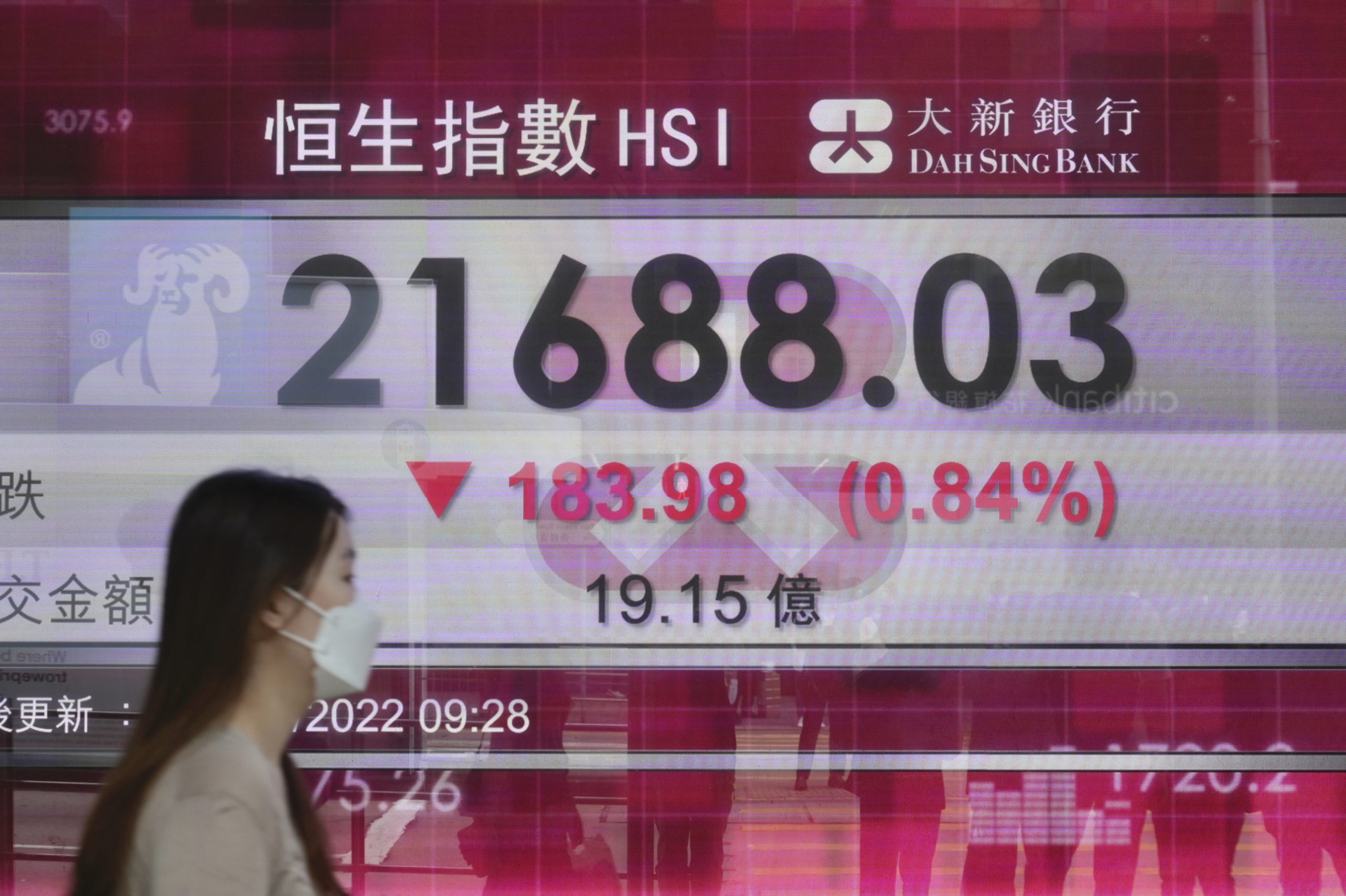 1
1 1
1
BEIJING (AP) — Asian stock markets followed Wall Street lower Monday after the Federal Reserve indicated it might raise interest rates more aggressively to cool U.S. inflation.
Shanghai, Tokyo, Hong Kong and South Korea all declined. Oil fell more than $2 per barrel amid concerns global economic growth might weaken.
Investors are uneasy about possible downward pressure on economic activity from higher interest rates, Russia’s war on Ukraine and China’s efforts to contain coronavirus outbreaks.
Wall Street’s benchmark S&P 500 lost 0.3% on Friday after Fed officials indicated in notes from their last meeting they were considering raising its benchmark rate by double the normal amount at upcoming meetings. They also indicated they are likely to shrink the Fed’s bond holdings, which also might push up commercial borrowing rates.
Investors see “increasing evidence the Federal Reserve will take a more committed approach” to fighting inflation, said Stephen Innes of SPI Asset Management in a report.
The Shanghai Composite Index lost 2.2% to 3,179.32 after inflation accelerated to 1.5% over a year ago in March from the previous month’s 0.9% amid upward pressure on global prices due to uncertainty about Russia’s war on Ukraine.
The Nikkei 225 in Tokyo lost shed 0.7% to 26,793.46 and Hong Kong’s Hang Seng retreated 2.5% to 21,324.05.
The S&P-ASX 200 in Sydney advanced less than 0.1% to 7,482.80. New Zealand and Singapore declined while Indonesia advanced.
On Friday, the S&P 500 declined to 4,488.28 while the Dow Jones Industrial Average rose 0.4% to 34,721.12. Tech stock weakness dragged the Nasdaq composite down 1.3% to 13,711.00.
Investors have been uneasy since Fed officials started saying they would try to cool inflation that is at a four-decade high by rolling back record-low interest rates and other stimulus that is boosting stock prices.
Higher interest rates usually depress economic activity and make safer assets such as bonds more attractive while making stocks look riskier and more expensive.
Some are afraid the Fed, after being accused of reacting too late to rising inflation, might push the brakes too hard and tip the world’s biggest economy into recession. Economists at Deutsche Bank last week forecast a U.S. recession by late next year.
Oil prices have fallen back on expectations of weaker demand after peaking above $130 per barrel last month due to anxiety about disruption of supplies from Russia, the world’s No. 2 exporter.
Meanwhile, in China, automakers and other companies are reducing production due to supply disruptions after authorities imposed stringent anti-disease controls to stop coronavirus outbreaks in Shanghai and other cities.
ACM Research, a supplier of equipment for the semiconductor industry that has operations in Shanghai, fell 6.1% after saying the restrictions will cause a significant hit to its revenue.
In energy markets, benchmark U.S. crude fell $2.16 to $96.10 per barrel in electronic trading on the New York Mercantile Exchange. The contract rose $2.23 to $98.26 on Friday. Brent crude, used as the price basis for international oils, retreated $2.18 to $100.60 per barrel in London. It rose $2.20 the previous session to $102.78 a barrel.
The dollar rose to 124.86 yen from Friday’s 124.37 yen. The euro edged up to $1.0087 from $1.0885.